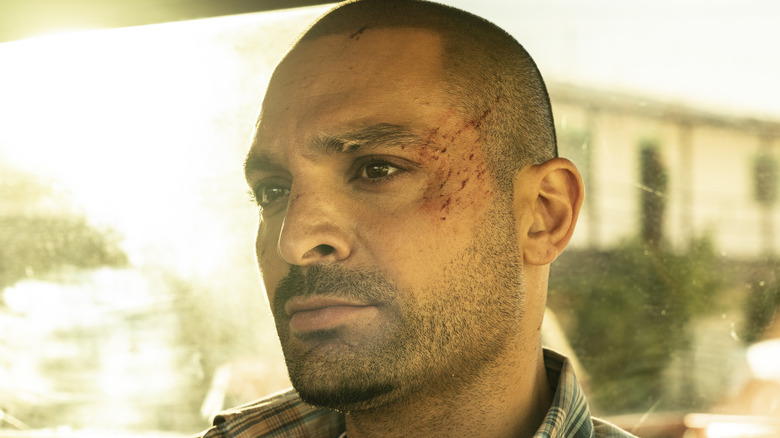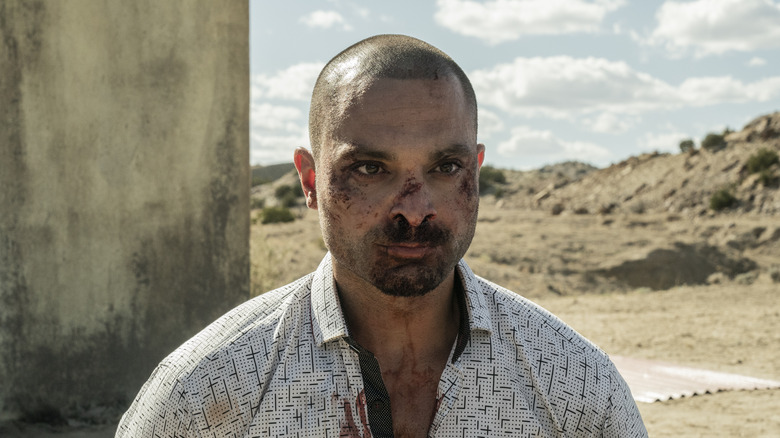Michael Mando Explains That Major Plot Twist In Better Call Saul Season 6 Episode 3
Contains spoilers for "Better Call Saul" Season 6 Episode 3
"Better Call Saul" fans were treated to a major plot development in just the third episode of its final season. Spoilers ahead, fans: Nacho Varga (Michael Mando) dies in "Rock and Hard Place," when Gustavo Fring (Giancarlo Esposito) and Mike Ehrmantraut (Jonathan Banks) smuggle him back to the U.S. and pretend they've apprehended him to turn him over to the Salamancas and the cartel for Lalo Salamanca's (Tony Dalton) murder. By this episode, Nacho's fraught attempts to escape Mexico show him that Gus won't help him disappear, so he instead makes a deal to turn himself over so long as Gus and Mike ensure Nacho's father's safety moving forward.
Unfortunately for Nacho, there are no more options or moves he or Mike, who had argued for letting Nacho live, can make in this situation. The Salamancas (aside from Hector) all think Lalo is actually dead, and Nacho is the prime suspect; smuggling Nacho to safety only puts more suspicion on Gus' operation than he cares to take on at the moment. Once Nacho reunites with Mike, they create a fake story for him to tell the Salamancas and Juan Bolsa (Javier Grajeda) that he had been employed by other drug families the whole time and helped kill Lalo on their orders. Nacho specifically makes sure to absolve Gus of any blame when he admits to the Salamancas that he brought on Hector's stroke and points to Gus as the one who saved Hector's life.
Nacho's final moments are brutal, but based on what actor Michael Mando is saying about his last episode, he does not view it as a death worth crying over.
Michael Mando said Nacho's final episode is his highest and lowest point at the same time
In an interview with Variety about Season 6's "Rock and Hard Place," Michael Mando said he felt Nacho's death served as both the character's highest and lowest moment. By the time Nacho surrenders himself to Mike and Gus, he understands fully that there is no way out of his situation — one way or another, he must die to satisfy Gus and the Salamancas' interests, as well as ensure his father's safety for good. It's not the ending Nacho deserves; Mando noted that even though it's when life treats him most unfairly, these scenes are when his character fully understands who he is and what his purpose is.
"It was a celebration of life, it was Nacho telling himself and the world not to cry for him," Mando told Variety about the character's final meal. "This was something he believed in and he was doing it with all his heart."
Variety and Mando noted that in Nacho's final scene, he is surrounded by characters whose fates audiences already know: Mike, Gus, Tyrus, Victor, Juan Bolsa, Hector Salamanca, and the Salamanca cousins all meet violent ends in "Breaking Bad." Mando noted that this arrangement gives Nacho's death scene an ominous feeling, calling the group dead men walking who gather to watch just the first man die. Mando also said it helps establish Nacho's death as an act of sacrifice, bravery, and love for his father, not an act of revenge against the Salamancas or Gus.

